Anybody remember way back in the late 90s when NASA launched the Mars Climate Orbiter, only to have it go missing (along with like $500,000,000) less than a year later because someone had screwed up the conversion rates between SI and non-SI units? It's a cautionary tale that teachers like to tell when students complain about having to learn and use metric. But it really makes you think about the absolutley precise calculations scientists have to make when launching anything into orbit. 0RBITALIS is a game about these kinds of calculations. And if that sounds boring, I can assure you it's not. London-based indie game developer Alan Zucconi has managed to streamline and simplify the process to deliver a pretty fun little physics puzzle game, and one that looks and sounds good at that.
A Space Odyssey The storyline in 0RBITALIS is...well, there isn't any. In fact, there's not even a tutorial to speak of, nor any real description anywhere of what the various objects and figures displayed on the screen even mean. But it is clear that you're looking at some kind of heavenly bodies in motion, gracefully dancing around one another in stable orbits. One particular object is a different color (usually red), and you'll also notice a predicted trajectory displayed, which you can manipulate by moving the mouse. You click the left mouse button, and you realize the little colored object is in fact a launcher of sorts, and what you're doing is launching a space probe. Or maybe you're just shooting a colored triangle. Anyway, you're going to have to use your imagination.
Houston, We Can't Even... As you can clean from the "storyline", the gameplay in 0RBITALIS revolves around launching some kind of probe, sometimes more. There's a Star Map, which consists of a galaxy divided up into various sectors, named for the letters of the Greek alphabet, beginning, naturally enough, with alpha, but ending with mu, arranged in a wheel. Each sector has its own themes and variations in color and objectives. Sometimes your objective will be to cause your probe to stay in orbit around a larger body for a set amount of time, or just as long as possible. Sometimes you might have to have it pass through certain lined-off areas a certain number of times. Sometimes you have to beat another probe to the punch, the green bastard.
What they all have in common is that the objective is never explained, or even hinted at, before each mission starts. And they all start the same way – your launcher is circling some body and you have to click the mouse button at just the right time. Your predicted trajectory is shown, and you can change the direction of the launch as well as the power of your rockets by moving the mouse around. Inevitably, most of your launches will either crash into one of the larger, more... attractive bodies, or go careening off into space. Either way, you'll learn from your errors. Now what's really cool here, however, is that the game displays your previous launch positions as red arrows that fade with each new attempt. This can be very helpful in trying to make incremental changes to a strategy that appears othwerwise sound.
After launching, it's all up to gravity, and the game makes use of concepts like slingshot physics and even negative gravity. While 0RBITALIS is based on physics, it's kind of like how movies like Braveheart are "based on" history. That is, it's entertainment, so liberties have been taken. For example, gravity is a LOT more powerful of a force in this game than in real life, and sometimes what would seem to be a reasonably stable orbit will suck in and smash your poor probe against the rocks, or whatever is down there. Some other reviewer I read talked about some stuff like "gravitational constant" and all that, but I took high school physics a looong time ago. Also, in real life, scientists can predict the most minute details of a flight path for a very long time before they even launch a probe or other spacecraft, so the "limited predicted trajectory" is a conceit that has been added to keep the game interesting. The computer "knows" whether you're going to fail or not beforehand, but chooses not to show you this.
It's in the gameplay department, however, that I would like to file my biggest complaint about 0RBITALIS. And that is, while some knowledge of the in-game physics is enough to help you plan a reasonable flight path on a map with few other objects, once you introduce enough of them, it becomes trial and error and nothing more, since I would venture to say that it is simply impossible to predict the long-term effect of all those moving objects. This is especially so on the maps where the probe has to loop in and out a set number of times. After the first few, it's just dumb luck. And dumb luck is just too prevalent a gameplay feature in 0RBITALIS. One Steam reviewer I read called it a "trial and error simulator", which I thought was hilarious, and wish I had thought of myself.
Another beef I have is that while your probe can go offscreen, it can't go too far offscreen. How far is anyone's guess. Sometimes you know your probe would be coming back along a certain path, but then the level ends because you've been offscreen for too long. Or gone too far. It's unclear. What is clear is that the camera view is set, and you can't move to get a better view of your probe or certain segments of the map.
That's No Moon... The graphics in 0RBITALIS are intentionally minimalistic, which is fine, really. No one needs super-accurate depictions in a game like this, and the level of abstraction drives the point home that what you're dealing with here is math and science (or something like it). The color black is always most prominent, but stars, planets, moons, etc. can come in a variety of colors or emit a variety of colored auras, which will differ from region to region. Check out the screenshots to the right, and you'll see that most of the game consists of colorful shapes moving in arcing paths, sometimes gentle, sometimes sharp. It can actually be quite beautiful, and I hope I haven't overused the word "graceful" by now.
Color-coding and size are helpful clues – for example, an object that glows blue while your own little probe is red will often have a negative gravity effect that repels any objects seeking to enter its orbit. Asteroids also figure into the picture in some levels, and a few are even made up of nothing but small objects moving in what appears to be a huge arc, though you only see a portion of it onscreen. I like to imagine this is supposed to represent the rings of Saturn or something like it.
The music – I'm sorry, the "audio experience" is provided by American entertainter/rapper/composer/etc. Doseone. Doseone's soundtrack is of an ambient and "spacey" electronic variety that suits the game very well. Other sound effects are minimalistic and utilitarian, in keeping with the overall theme of the game.
The biggest "problem" re: graphics and sound is not so much a problem with the way the game looks and feels per se, but with the way it strains your system. The calculations that the game goes through in determining all the factors in creating a flight path can really put a strain on your system, which you wouldn't really expect from a game that looks so... well, simple. I had to set the graphics really low most of the time just to avoid any lagging. I did check to see if other people were having this issue, and they were. Lots of people claim that they the game runs even their top-tier hardware ragged.
Across the Universe There are lots of other features to 0RBITALIS that I haven't mentioned yet. One of these is the leaderboards, where you can see how you fared compared to other players in the system. Usually Mr. Zucconi himself is at or near the top with the best score/time. The game also allows you to edit your own scenarios and share them via Steam's Workshop features, though I must admit I preferred to stick to the ones in the main "campaign".
There's also a "Daily Challenge" feature, a new scenario each day for you to solve, but this only confirmed my general opinion that the type of gameplay featured in 0RBITALIS and the way you make progress is much better-suited to Mobile devices. In terms of long-term motivation, there's just no reason for me to sit down at my computer and load the game to play a single Daily Challenge after I've exhausted all the main missions. And by the way, it took me less than four hours to complete all the sectors from α to μ, leaving the user-created scenarios and Daily Challenges as the only real long-term motivation to keep playing, unless you're the kind of person that is tenacious about climbing leaderboards. One user I saw on Steam had logged a whopping 96.5 hours, so I guess he got his ten bucks' worth.







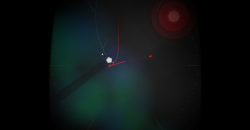
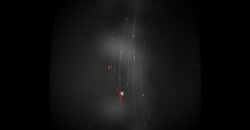
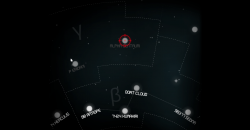
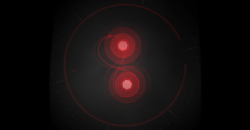
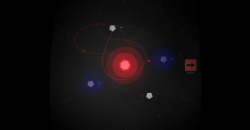
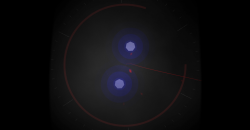
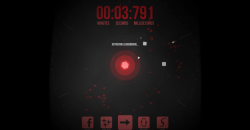
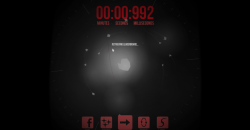
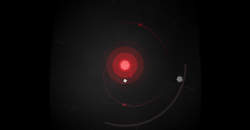
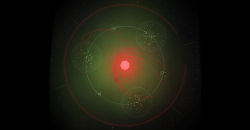

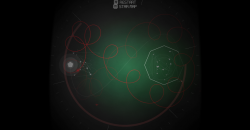
Cool game
man it looks like a fun game